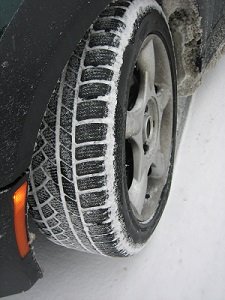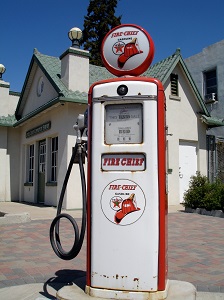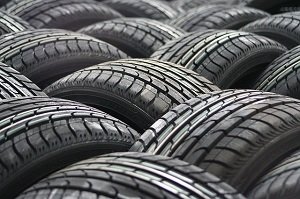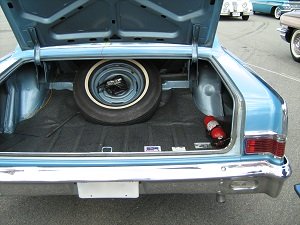Posted on 12/31/2015

In a lot of parts of the country, the winters are tough enough that all-season tires just won’t get the job done. All-season tires are a compromise; they offer good year-round traction with a quiet ride, good handling and road manners. They tend to perform well in wet weather and light wintry conditions, but when the snow is more than a couple of inches deep, all-season tires are out of their league. That’s when it’s time to consider winter tires. Today’s winter tires are a long way from the heavy, noisy, clumsy “snow tires” or “mud grips” that your dad might have had on his station wagon 40 years ago. Modern winter tires are designed for noise, handling, steering response and road manners that rival grand touring tires, only with enhanced traction. They accomplish that with deeper, more aggressive tread grooves and a tread pattern that’s designed to eject snow and slush for a clean “bite” with every revolut ... read more
Posted on 12/17/2015

If you’re past “a certain age,” you might remember when gas was $1.50 per gallon, or $1.00 per gallon, or 59 cents, or what-have-you…but the truth is that everything has gotten more expensive. After all, when gas was $1.00 per gallon, a nicely tricked-out Chevrolet Caprice Classic was selling for about $6,000 brand new. Now that we’re well into the 21st century, gas prices are likely to fluctuate, but one thing’s for sure: gas is likely to never be “cheap” again. We know that everyone’s trying to get a little more out of every dollar, and whether you’re driving a big SUV or a subcompact, there are things you can do to help your vehicle’s fuel economy: • Watch your right foot. This is probably the most important thing on the list. It takes a lot of energy and fuel to get your car moving, whether it’s a 5500-pound Chevy Yukon or a 2700-pound Mini. Every time you accelerate hard, you’re ... read more
Posted on 11/26/2015

Where did this year go? Before you know it, it’s going to be time for the holidays, and that can mean travel in some pretty trying conditions (and we don’t just mean restless kids in the back seat). Is your vehicle ready for some interstate miles? • Tires: It’s a good idea to have your tires rotated every 5,000-7,000 miles to ensure even wear. With that in mind, it’s easy to just schedule a tire rotation with every oil change, since the vehicle will be up in the air on a lube rack anyway. Have you checked your inflation lately? Your proper inflation levels will be on a sticker on the driver’s side door frame, inside the fuel filler door or in the owner’s manual – always check the inflation when the tires are cold. How about the tread depth? 2/32” is the minimum tread depth allowed in most states. Here’s an easy way to check your tread depth: take a penny and insert it into the tread grooves, Lincoln head down ... read more
Posted on 11/12/2015

Winter tires versus all-season tires…which is the right choice for you? The two designs are quite different and deliver different levels of performance and winter-weather traction, so let’s discuss. • All-season tires are designed as an all-around compromise. They feature a tread pattern that evacuates water from the tire’s contact patch to prevent hydroplaning, with plenty of small, textured slits (sipes) to add extra biting edges for traction in wet or slushy conditions. • All-season tires are designed with a harder tread compound that can deliver a long service life and long wear. • All-season tires can deliver the same sort of low noise, comfortable ride and good handling as most touring or grand-touring tires. They offer straight-line stability, good road manners and good road feel on asphalt. Now, let’s compare-and-contrast all-season tires with winter tires… • Winter tires use a softer tre ... read more
Posted on 10/29/2015

Oh, the lowly spare tire. It doesn’t get much respect. Today, a lot of vehicles don’t even come with a spare tire anymore, not even the little “donut” space-saver spare. Instead, to cut weight and free up space, they come with a compressor and a can of a Fix-a-Flat-style product in hopes that you can get back on your way again. Great idea, unless your tire has a sidewall puncture or is shredded… Anyway, if your car is equipped with a spare, you shouldn’t just ignore it. Tires have a shelf life, and time will take its toll on any tire, including ones that are never on the ground. Even brand-new tires have a sell-by date; the industry agrees that tires that are older than six to eight years old are probably unsafe due to degradation of the rubber. Your spare can sit in the trunk or under the vehicle and dry-rot over time, and even if it doesn’t, it can lose air to the point where it’s useless. If your vehicle has a full-si ... read more